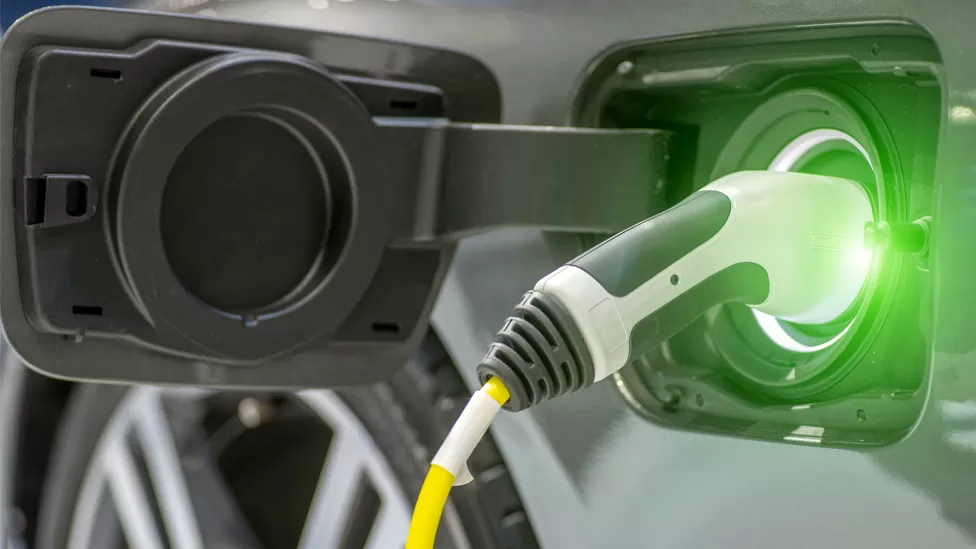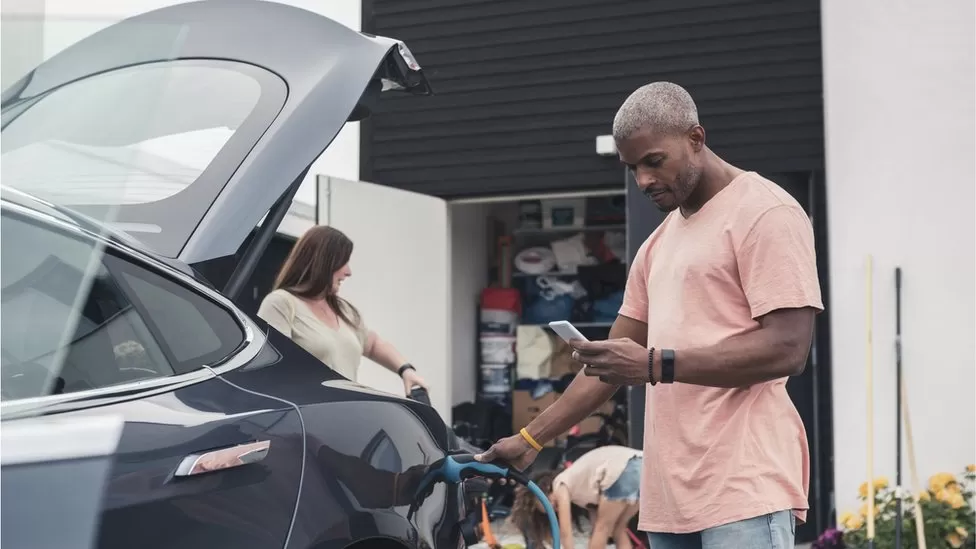The cost of charging an electric car has surged due to the rise in energy prices, prompting fears it will put off drivers from buying them, the RAC said. It said electric car (EV) owners who use “rapid” public charging points were paying almost the same for electricity as they would for petrol per mile. Charging cars at home is cheaper, but domestic bills are also rising.
Russia’s invasion of Ukraine has been blamed for much of the recent rise in electricity and gas prices. The RAC said its research showed the cost to charge an electric car on a pay-as-you-go basis at a publicly accessible rapid charger had increased by 42% since May to an average of 63.29p per kWh.

The hike in price means drivers who only use the public network to charge vehicles pay around 18p per mile for electricity. That is just one penny less per mile for a petrol car, based on someone driving at an average of 40 miles to the gallon, the motoring group said. The cost per mile for charging electric vehicles at home is around 9p per mile for the average-sized car. The BBC has been told most EV drivers charge at home overnight.
“For those that have already made the switch to an electric car or are thinking of doing so, it remains the case that charging away from home costs less than refuelling a petrol or diesel car, but these figures show that the gap is narrowing as a result of the enormous increases in the cost of electricity,” RAC spokesman Simon Williams said. “These figures very clearly show that it’s drivers who use public rapid and ultra-rapid chargers the most who are being hit the hardest.” Mr Williams said the government’s support package for household bills, which will see typical bills limited to about £2,500 per year until 2024, would benefit drivers charging vehicles at home. However, he warned for those relying on public charge points and without driveways would face a “much bleaker picture”.

Charging vehicles at home can be cheaper than public chargers due to the way electricity is taxed, with the RAC calling for reducing VAT at public chargers from 20% to 5%, the level it is in the home. “That would reduce the cost of an 80% rapid charge by 7.91p to 55.38p per kWh, and an ultra-rapid charge by 7.99p to 55.95p per kWh and would not unfairly penalise those drivers who can’t charge their cars at home,” Mr Williams said. Quentin Willson, the founder of the FairCharge campaign, said the government needed to “act” on charging costs by capping rises in public charging costs and lowering VAT. “If they don’t, all those years of promises of a zero-emission future, clean air and energy independence will have come to nothing,” he added.
The Department for Transport electric vehicles continued to “offer opportunities for savings against their petrol and diesel counterparts, with lower overall running costs thanks to cheaper charging, lower maintenance costs and tax incentives”. “We want consumers to have the confidence to make the switch to cleaner, zero emissions cars, and that is why we continue to support the growth of our world-leading charging network and have pledged £1.6bn since 2020 to delivering charge points across the country,” a statement added.
Electric cars also usually cost thousands of pounds more than their petrol or diesel counterparts. This is because EV batteries are expensive to make and a high level of investment is needed to transform existing factory production lines to manufacture the new technology. However, costs are expected to come down in the near future: industry group the Society of Motor Manufacturers and Traders forecasts electric and internal combustion engine cars should cost roughly the same “by the end of this decade”.
![]()





